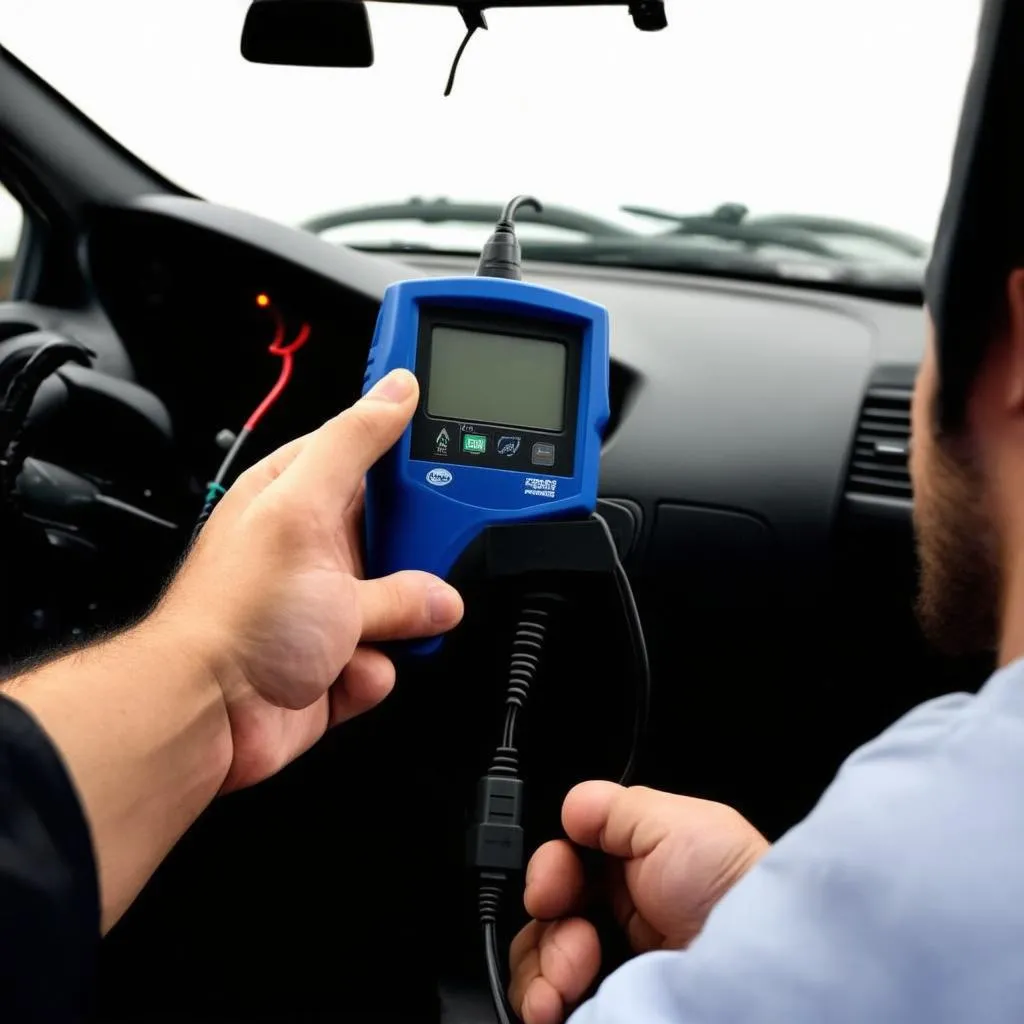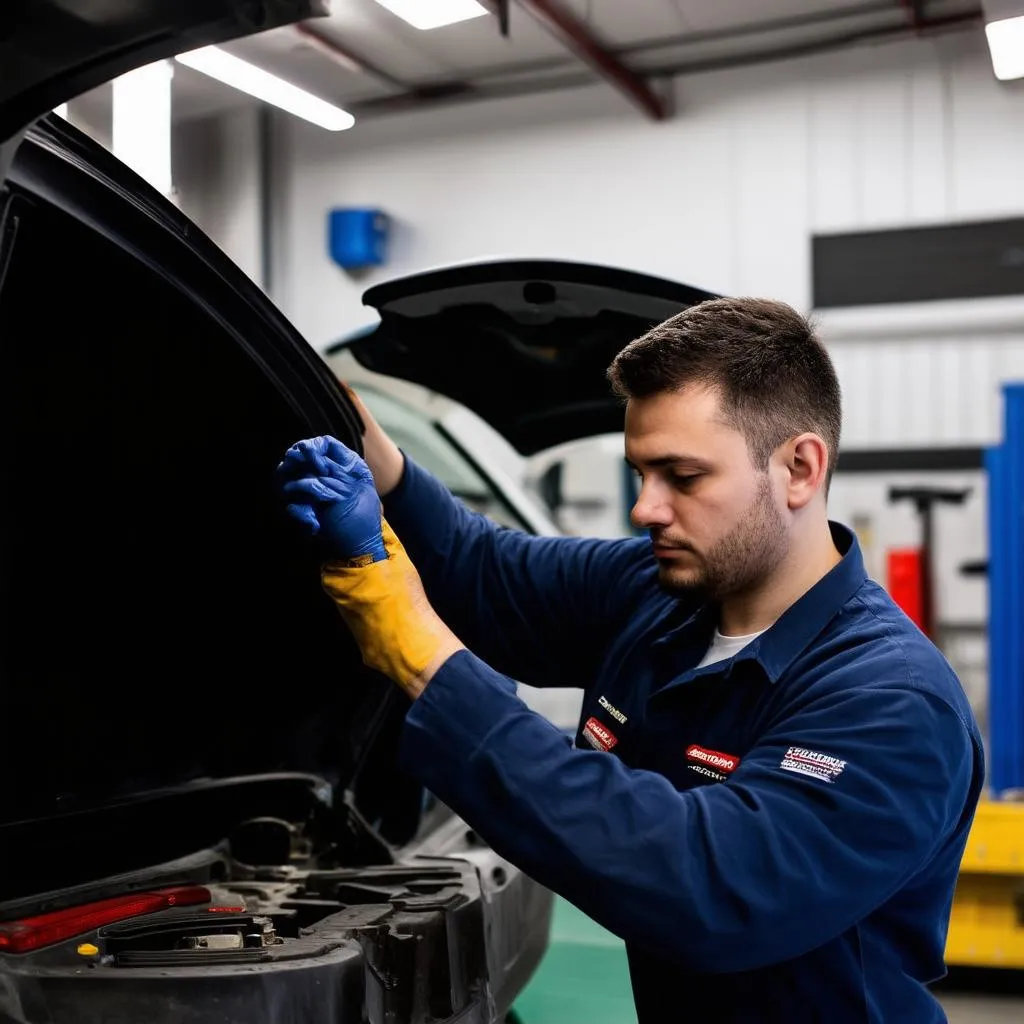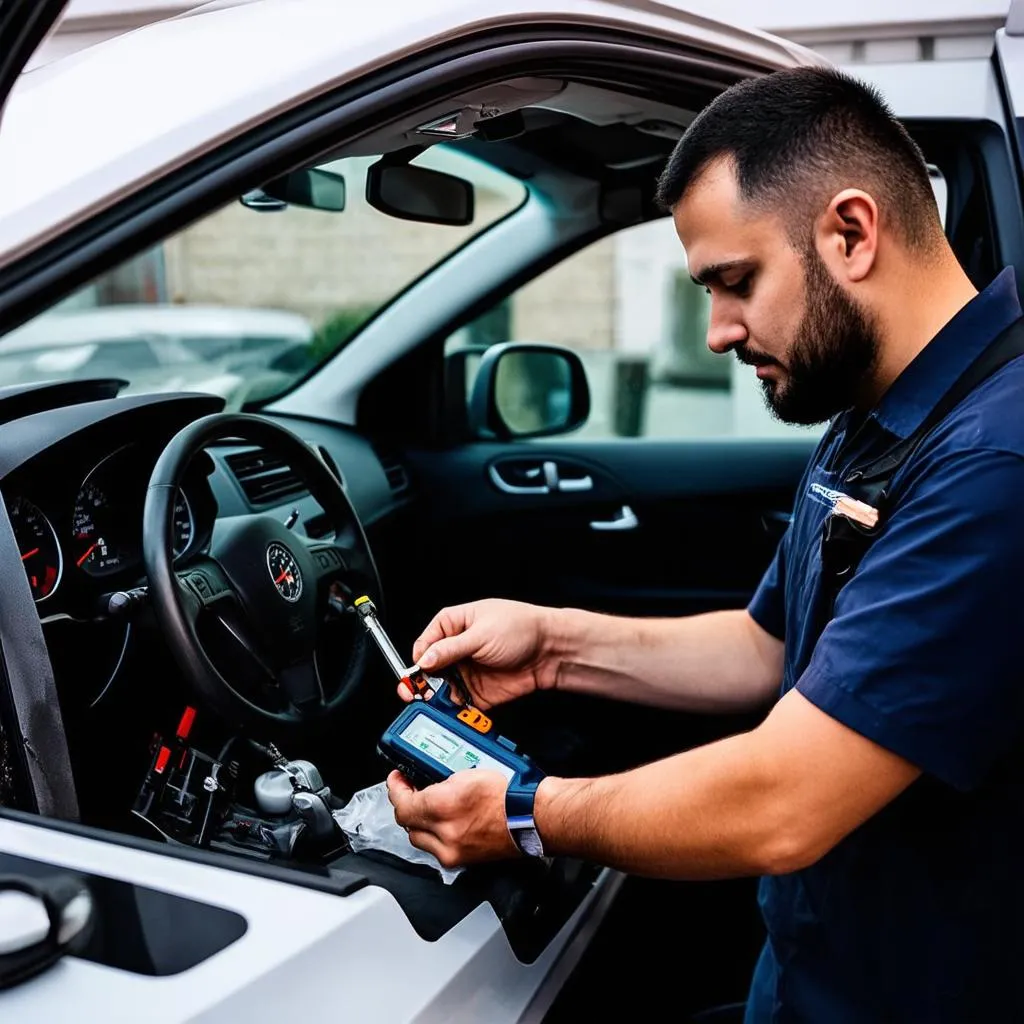Have you ever wondered if those inexpensive OBD2 scanners you find online are actually accurate? You’re not alone. Many car owners rely on these devices to diagnose engine problems, but some question their reliability. In this article, we’ll dive into the accuracy of OBD scanners, explore their limitations, and guide you through understanding their capabilities.
The Importance of Understanding OBD Scanners
Imagine you’re driving your beloved 2015 Mazda 6 down a busy highway in Los Angeles, suddenly your “Check Engine” light flashes. You pull over, wondering what’s wrong. A quick scan with an OBD2 scanner reveals a “P0301” code, indicating a misfire in cylinder 1. You wonder, “Is this scanner telling me the truth? Can I trust it to fix the problem?” This is where understanding the accuracy of OBD scanners becomes crucial.
What Are OBD Scanners?
OBD (On-Board Diagnostics) scanners are devices that connect to a car’s diagnostic port (usually located under the dashboard) to retrieve diagnostic data. They can read error codes, monitor sensor readings, and even provide real-time data on engine performance. These scanners are widely used by mechanics, but they are also readily available for personal use.
How Accurate Are OBD Scanners?
The accuracy of OBD scanners depends on several factors:
1. Type of Scanner:
- Generic OBD Scanners: These are the most affordable and readily available. They can read basic engine codes and provide limited data. While they are generally accurate for common codes, they may not be able to diagnose more complex problems. For example, a generic scanner might only tell you that your car has a misfire, but it won’t be able to pinpoint the exact cause of the misfire.
- Advanced OBD Scanners: These scanners offer more advanced features, such as live data readings, code clearing, and even access to manufacturer-specific data. They are typically more expensive than generic scanners. While they offer a higher level of accuracy, they still rely on the data provided by the car’s onboard computer.
2. Vehicle Compatibility:
- OBD scanners are designed to work with vehicles equipped with OBD-II compliance. Most vehicles manufactured after 1996 in the United States and many European cars comply with OBD-II standards. However, older cars or vehicles manufactured in other regions might require specific adapters or scanners. For instance, you might need a special adapter for a classic Ford Mustang or a European BMW F30.
3. Accuracy of Onboard Computer Data:
- Even the most advanced OBD scanners are only as accurate as the data provided by the vehicle’s onboard computer. If the sensor readings are inaccurate or the computer has a fault, the scanner will reflect those errors. It’s important to note that the onboard computer is responsible for gathering data from sensors across the vehicle.
Are OBD Scanners Reliable for Diagnosing Problems?
While OBD scanners can be helpful tools for identifying potential issues, they shouldn’t be solely relied upon for diagnosing problems. Here’s why:
1. Limited Scope:
- OBD scanners primarily focus on engine-related issues. They may not provide information about other vehicle systems, such as the transmission, brakes, or electrical system.
2. Code Interpretation:
- Obtaining a diagnostic code doesn’t always mean you know the exact problem. Some codes can have multiple causes, and interpreting them requires specialized knowledge. For instance, a “P0171” code might indicate a lean fuel condition, but this could be caused by a variety of factors, including a faulty oxygen sensor, air leaks, or even a clogged fuel injector.
3. Need for Professional Diagnosis:
- In many cases, a professional mechanic with specialized equipment and expertise is required for a comprehensive diagnosis and repair. An OBD scanner can be a valuable tool for a mechanic, but it’s not a substitute for their knowledge and experience.
Conclusion
OBD scanners can be valuable tools for car owners, but it’s important to understand their limitations. While they can provide valuable insights into potential problems, they should not be solely relied upon for diagnosing complex issues. Remember, an accurate diagnosis often requires the expertise of a professional mechanic.
If you’re unsure about how to interpret a diagnostic code or are dealing with a serious car problem, it’s always best to consult with a reputable mechanic.
For further questions or assistance with diagnosing your European car, don’t hesitate to reach out to our team of experts at Tech Car USA. We offer specialized diagnostics services and provide comprehensive guidance for your car care needs. Contact us via Whatsapp at +84767531508 for immediate assistance.
 OBD Scanner Accuracy
OBD Scanner Accuracy
 Professional Mechanic
Professional Mechanic
 European Car Diagnostics
European Car Diagnostics